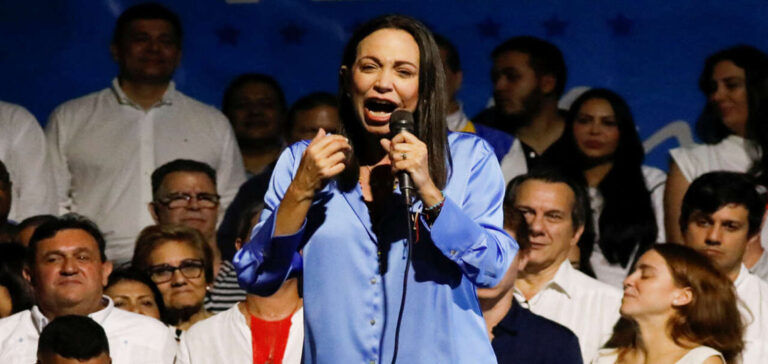In Venezuela’s Presidential Elections Maria Corina Machado, who has called for the privatization of Venezuela’s state-owned oil company PDVSA, won the Venezuelan opposition’s presidential nomination by a landslide. However, its path to election participation remains uncertain.
Recent US sanctions have made the lifting of sanctions conditional on Venezuela taking action by the end of November to establish a timetable and process to allow banned candidates, such as Machado, to stand in the general elections scheduled for the second half of 2024. However, there may be scope for the Venezuelan government to delay a decision on reinstatements, and for the US to limit the reinstatement of sanctions.
A timetable and process for reinstatement don’t necessarily mean actual reinstatement, said Kevin Book, Director of Research at ClearView Energy Partners. If Maduro proposes a process in December, a decision on reinstatement could still be months away. What’s more, the scope of any sanctions reinstatement may still be undecided within the Biden administration.
Export Options
Following the signing of two agreements between representatives of Maduro and part of the opposition, the US Treasury Department’s Office of Foreign Assets Control (OFAC) issued four general licenses partially suspending sanctions on Venezuela’s oil and mining sector for six months.
Although the lifting of sanctions is short-lived, companies operating in Venezuela have a clearer vision with more room to maneuver to collect their debts and consolidate their operations, with the expectation of an improvement in the short to medium term. American buyers can now buy directly from Venezuela without going through Chevron, which should boost exports to the US.
However, production is expected to pick up slowly. “Even if the license is extended beyond six months, it will take time for upstream investments to start having an impact on Venezuela’s production capacity, which we currently estimate at between 800,000 and 850,000 barrels per day,” the briefing says.
The Struggle for a More Open Oil Sector
For the partial and temporary lifting of sanctions to produce concrete and progressive results, political change is essential.
Maria Corina Machado, a 56-year-old engineer, has political obstacles to overcome before she can take on Maduro in the presidential elections scheduled for the second half of 2024. Maduro declared Machado disqualified from running for public office, but was unable to legalize the disqualification.
Since 2019, the United States has maintained sanctions against Maduro government officials and the country’s main company, PDVSA, after Nicolas Maduro was inaugurated as president for a six-year term, following elections not recognized by more than 60 countries.
Maria Corina Machado’s victory in the Venezuelan opposition primary underlines the political changes underway in Venezuela and their repercussions on the oil sector and international sanctions.
Final Analysis
The final analysis highlights the importance of political developments in Venezuela and Maria Corina Machado’s victory in the opposition primaries. The repercussions affect both the oil sector and international sanctions.
The partial lifting of sanctions offers companies operating in Venezuela an opportunity to re-establish their activities, but the resumption of production is likely to be gradual. The political situation in Venezuela remains uncertain, with challenges ahead of the presidential elections scheduled for 2024.
The current situation underlines the importance of political developments and international diplomacy in a complex economic and energy context.






















